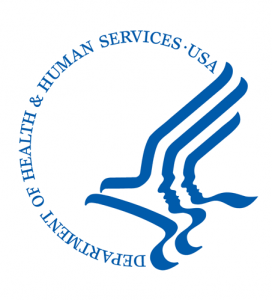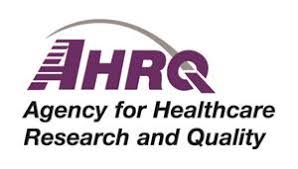 Updates from HHS
Updates from HHS
AHRQ Releases Systematic Review of Interventional Treatments for Acute and Chronic Pain
 The Evidence-based Practice Center Program at the Agency for Healthcare Research and Quality (AHRQ) has completed and released their evidence review of interventional treatments for acute and chronic pain. The review found a number of treatments to be more effective than sham or usual care, including vertebroplasty, kyphoplasty, and cooled radiofrequency denervation. However, most evidence was limited and more research is needed to determine the benefits and harms of other interventional procedures addressed in the report.
The Evidence-based Practice Center Program at the Agency for Healthcare Research and Quality (AHRQ) has completed and released their evidence review of interventional treatments for acute and chronic pain. The review found a number of treatments to be more effective than sham or usual care, including vertebroplasty, kyphoplasty, and cooled radiofrequency denervation. However, most evidence was limited and more research is needed to determine the benefits and harms of other interventional procedures addressed in the report.
To improve the future evidence-base, reviewers recommend that future trials of interventional procedures should enroll older, Medicare-eligible populations, utilize sham controls, evaluate function as well as pain, include rigorous evaluation of harms, evaluate longer-term outcomes, and evaluate benefits and harms according to demographic, clinical, and technical factors.
NIH Study Shows Disparities in Opioid Overdose Deaths Underscore the Need for Racially Inclusive Solutions
![]() According to a new study by the National Institutes of Health, published in the American Journal of Public Health, non-Hispanic Black individuals experienced a 38% increase in the rate of opioid overdose deaths from 2018 to 2019, while the rates for other race and ethnicity groups held steady or decreased, emphasizing the need for equitable, data-driven, community-based interventions that address these disparities. The research was conducted as part of the HEALing Communities Study, which aims to significantly reduce opioid-related overdose deaths by helping communities implement evidence-based practices to treat opioid use disorder and reduce other harms associated with opioid use.
According to a new study by the National Institutes of Health, published in the American Journal of Public Health, non-Hispanic Black individuals experienced a 38% increase in the rate of opioid overdose deaths from 2018 to 2019, while the rates for other race and ethnicity groups held steady or decreased, emphasizing the need for equitable, data-driven, community-based interventions that address these disparities. The research was conducted as part of the HEALing Communities Study, which aims to significantly reduce opioid-related overdose deaths by helping communities implement evidence-based practices to treat opioid use disorder and reduce other harms associated with opioid use.
NAM Discussion Paper Urges Health Care Quality and Safety Initiatives to Focus on Health Equity
 A new discussion paper in NAM Perspectives, the digital periodical of the National Academy of Medicine, identifies health equity as the area of most urgent and cross-cutting concern for health care quality organizations. The paper outlines key barriers that are impeding progress toward health care equity, then offers a proposed agenda for centering equity in efforts moving forward, including: increasing patient trust and involvement; increasing community engagement; rewarding organizations for progress toward equity; improving data quality; and implementing new and improved measurement strategies.
A new discussion paper in NAM Perspectives, the digital periodical of the National Academy of Medicine, identifies health equity as the area of most urgent and cross-cutting concern for health care quality organizations. The paper outlines key barriers that are impeding progress toward health care equity, then offers a proposed agenda for centering equity in efforts moving forward, including: increasing patient trust and involvement; increasing community engagement; rewarding organizations for progress toward equity; improving data quality; and implementing new and improved measurement strategies.
